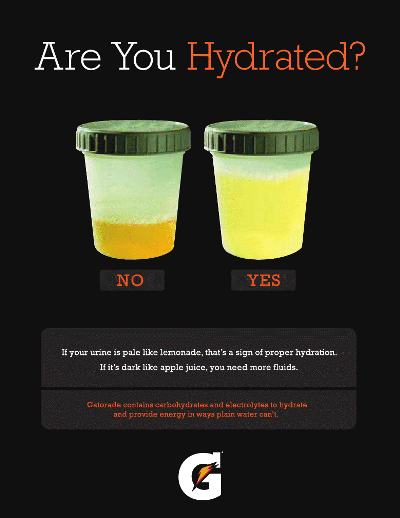 Playing sports has a multitude of benefits for kids. Beyond the understood exercise, children learn time management, how to get along with other players, and most importantly, the necessity of teamwork. One of the most important, and least emphasized, skills that children will learn while playing sports is the necessity of proper nutrition and how it relates to both endurance and results.
Playing sports has a multitude of benefits for kids. Beyond the understood exercise, children learn time management, how to get along with other players, and most importantly, the necessity of teamwork. One of the most important, and least emphasized, skills that children will learn while playing sports is the necessity of proper nutrition and how it relates to both endurance and results.
Have you heard the saying, “You only get out of it what you put into it?” That saying seems tailor made for sports. As adults, we know the importance of fueling ourselves correctly, being certain to be adequately hydrated and well rested. These lessons are not usually at the forefront of a coach’s mind, however, and when you spend time ferrying your kids back and forth, it can often slip to the bottom of your priority list as well. After all, you’ve got to remember where the practice has been scheduled, remember to get the kids there on time AND the gear – something’s bound to slip your mind.
Arguably the most important aspect of the children/sports/nutrition triangle, and the one easiest to overlook, is hydration. Sure, we send our kids to practice and games with a water bottle – but do we make sure that they drink it all? And is the beverage that we’ve given them the best choice? How many of us have seen the swarm of players at the end of a game, grabbing a sugar sweetened drink pouch and thought to yourself, “Is that really the best beverage choice for a player who has just run for an hour?” Let’s take a look at hydration as it relates to the child or teen athlete.
Being hydrated means having enough water in one’s body to support basic function. All parts of the body need water to function. As you exercise, you secrete water in both sweat and increased exhalations. You also lose salts and electrolytes. Have you ever noticed a white film on your athlete’s shin guards after a hot game? That’s salt, leached from the body and if it’s not replaced, the body can show signs of trouble. Shaking, cramping, headaches and even passing out are all signs of dehydration.
Children become dehydrated more quickly than adults and the effect is much more dramatic, so it really pays to keep a close eye on hydration levels. In fact, in a study funded by Gatorade, a full 70% of all student athletes show up to practice dehydrated, although the majority of their moms felt that their children were fully hydrated.
In the early 2000’s, Gatorade sent posters to all college/pro team partners decorated with an eye catching graphic. This poster was also included in educational mailings to high school athletic trainers. Many of the teams placed this poster above the urinals used by major league football players. It very simply illustrated the difference between the output of a person who is well hydrated and a person who needs to have more water. Ideally, urine should be the color of lemonade. Anything darker illustrates an increased need for water.
Many children are resistant to drinking enough water. It’s boring, they claim. What are some ways that you can help you child be sure to drink enough to maintain a healthy level for optimal health?
- Begin your hydration efforts the day before. Hydration is an ongoing effort, so increasing water intake the day before the big game or track meet helps plump the cells so that the water can be utilized at a time of need.
- Drink on the way to the game. Often, kids become distracted due to the pressure of the game and forget to drink enough, but if you’ve enjoyed plenty of water on the way, the negative effect can be minimized.
- Don’t underestimate the importance of juicy fruit. Watermelon, oranges, grapes – even berry fruits have a high level of water and help minimize water loss.
- Sports replenishing drinks, such as Gatorade, are optimal for helping to replenish the salt and electrolytes that have been lost. If you are worried about the amount of sugar, look for reduced sugar or natural versions. The sugar performs a service, though, in that sugar=carbs=energy, so if your child has played a tough game, he may very well need the additional sugars. Gatorade has two lines in particular that are good choices – the G2 and the Gatorade Naturals.
Also Read:
The Right Way to Fuel Your Child Athlete
Thirsty? Why Water is so Important to Stay Hydrated
3 Ways to Easy Avoid Dehydration Dangers

